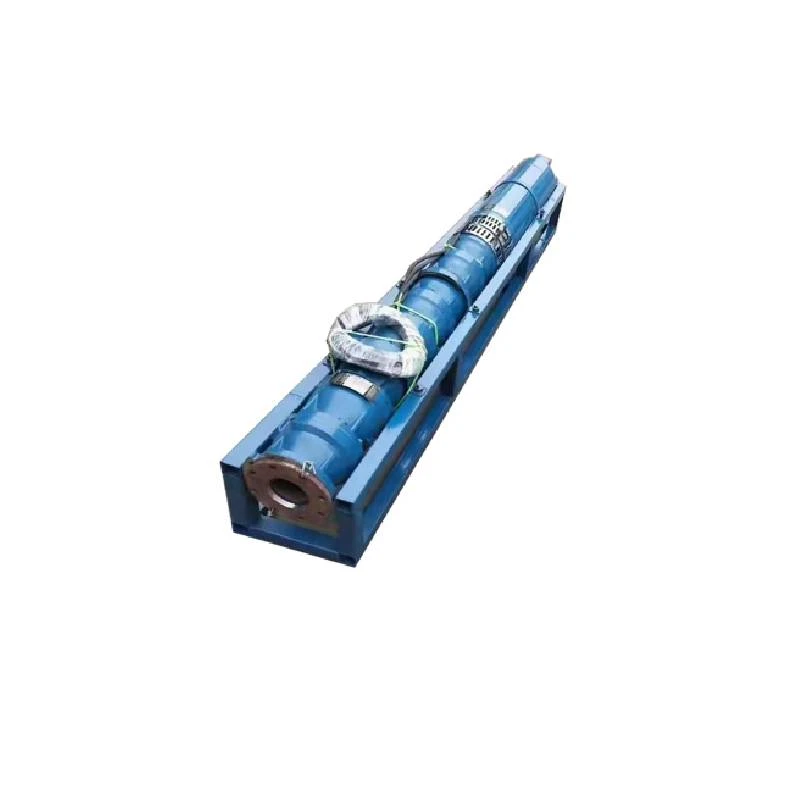Nov . 17, 2024 05:31 Back to list
deep water well pump
Understanding Deep Water Well Pumps Essential Components and Applications
Deep water well pumps are crucial devices designed for the extraction of groundwater from deep underground aquifers. These pumps play a vital role in various sectors, including agriculture, municipal water supply, and industrial applications. As we explore the intricacies of deep water well pumps, it is important to consider their design, functionality, and the factors influencing their selection and use.
Design and Components
A deep water well pump is typically submerged under water and is powered by an electric motor located either at the surface or submerged with the pump itself, depending on the type. The most common designs include submersible pumps and vertical turbine pumps.
1. Submersible Pumps These pumps are sealed units that are submerged in the water. The motor drives the pump impellor directly to lift water through a discharge pipe. Submersible pumps are favored for their efficiency and quiet operation. They are ideal for deeper wells since they can operate at greater depths without losing suction.
2. Vertical Turbine Pumps Commonly used in very deep wells, these pumps have a long vertical shaft that connects the surface motor to the pump impellor located at the well’s bottom. The water is lifted to the surface through long columns of pipe. Vertical turbine pumps can handle high volumes of water and are often used in municipal water supply systems.
Regardless of the design, all deep water well pumps consist of several key components the pump assembly, motor (submersible or vertical), discharge head, bowl assembly, and the shaft. Understanding these components is essential for maintenance and operation.
Applications
Deep water well pumps serve numerous purposes across different sectors
1. Agriculture These pumps are indispensable for irrigation. In arid and semi-arid regions, farmers rely on deep water wells to access groundwater for crop production. The efficiency of these pumps directly impacts irrigation practices and agricultural yields.
2. Municipal Water Supply Many cities rely on deep wells to supply drinking water. Water treatment facilities often utilize these pumps to deliver clean, potable water to communities, especially those that may not have access to surface water sources.
deep water well pump

3. Industrial Use Industries such as mining, construction, and chemical manufacturing depend on deep water well pumps for various processes, including cooling, washing, and as part of their operational supply chain.
4. Residential Use In rural areas, homeowners often use deep water wells to access groundwater for personal use. These systems provide a reliable solution for families living in locations where municipal water supplies are unavailable or inconsistent.
Factors Influencing Pump Selection
When selecting a deep water well pump, several factors must be taken into account
1. Depth of the Well The depth directly influences the type of pump required. Submersible pumps are often preferred for deeper wells, while shallower applications may utilize vertical turbine models.
2. Flow Rate Requirements The desired flow rate, or the amount of water needed per minute, is critical for pump selection. It’s essential to choose a pump that can efficiently meet or exceed the required flow rate for its intended use.
3. Water Quality The presence of sand, minerals, or other particulates in the water can impact pump performance. Selecting a pump that can handle the specific water quality conditions will enhance durability and reduce maintenance costs.
4. Power Supply Availability The availability of electrical power or alternative energy sources will determine whether a submersible or surface-mounted pump is appropriate.
5. Budget and Maintenance Cost is always a factor, but so is the long-term maintenance and pump longevity. Investing in higher-quality pumps may yield better reliability and lower operating costs over time.
Conclusion
Deep water well pumps are invaluable assets that provide access to groundwater essential for agricultural, municipal, and industrial needs. Understanding their design, applications, and the nuances of selecting the right pump is critical for optimizing water extraction methods. With proper care and selection, deep water well pumps can operate efficiently, ensuring sustainable access to this vital resource for years to come. As our reliance on groundwater increases, the importance of understanding and implementing effective pump technology will only grow.
-
Submersible Water Pump: The Efficient 'Power Pioneer' of the Underwater World
NewsJul.01,2025
-
Submersible Pond Pump: The Hidden Guardian of Water Landscape Ecology
NewsJul.01,2025
-
Stainless Well Pump: A Reliable and Durable Pumping Main Force
NewsJul.01,2025
-
Stainless Steel Submersible Pump: An Efficient and Versatile Tool for Underwater Operations
NewsJul.01,2025
-
Deep Well Submersible Pump: An Efficient 'Sucker' of Groundwater Sources
NewsJul.01,2025
-
Deep Water Well Pump: An Efficient 'Sucker' of Groundwater Sources
NewsJul.01,2025
-
 Submersible Water Pump: The Efficient 'Power Pioneer' of the Underwater WorldIn the field of hydraulic equipment, the Submersible Water Pump has become the core equipment for underwater operations and water resource transportation due to its unique design and excellent performance.Detail
Submersible Water Pump: The Efficient 'Power Pioneer' of the Underwater WorldIn the field of hydraulic equipment, the Submersible Water Pump has become the core equipment for underwater operations and water resource transportation due to its unique design and excellent performance.Detail -
 Submersible Pond Pump: The Hidden Guardian of Water Landscape EcologyIn courtyard landscapes, ecological ponds, and even small-scale water conservancy projects, there is a silent yet indispensable equipment - the Submersible Pond Pump.Detail
Submersible Pond Pump: The Hidden Guardian of Water Landscape EcologyIn courtyard landscapes, ecological ponds, and even small-scale water conservancy projects, there is a silent yet indispensable equipment - the Submersible Pond Pump.Detail -
 Stainless Well Pump: A Reliable and Durable Pumping Main ForceIn the field of water resource transportation, Stainless Well Pump has become the core equipment for various pumping scenarios with its excellent performance and reliable quality.Detail
Stainless Well Pump: A Reliable and Durable Pumping Main ForceIn the field of water resource transportation, Stainless Well Pump has become the core equipment for various pumping scenarios with its excellent performance and reliable quality.Detail
